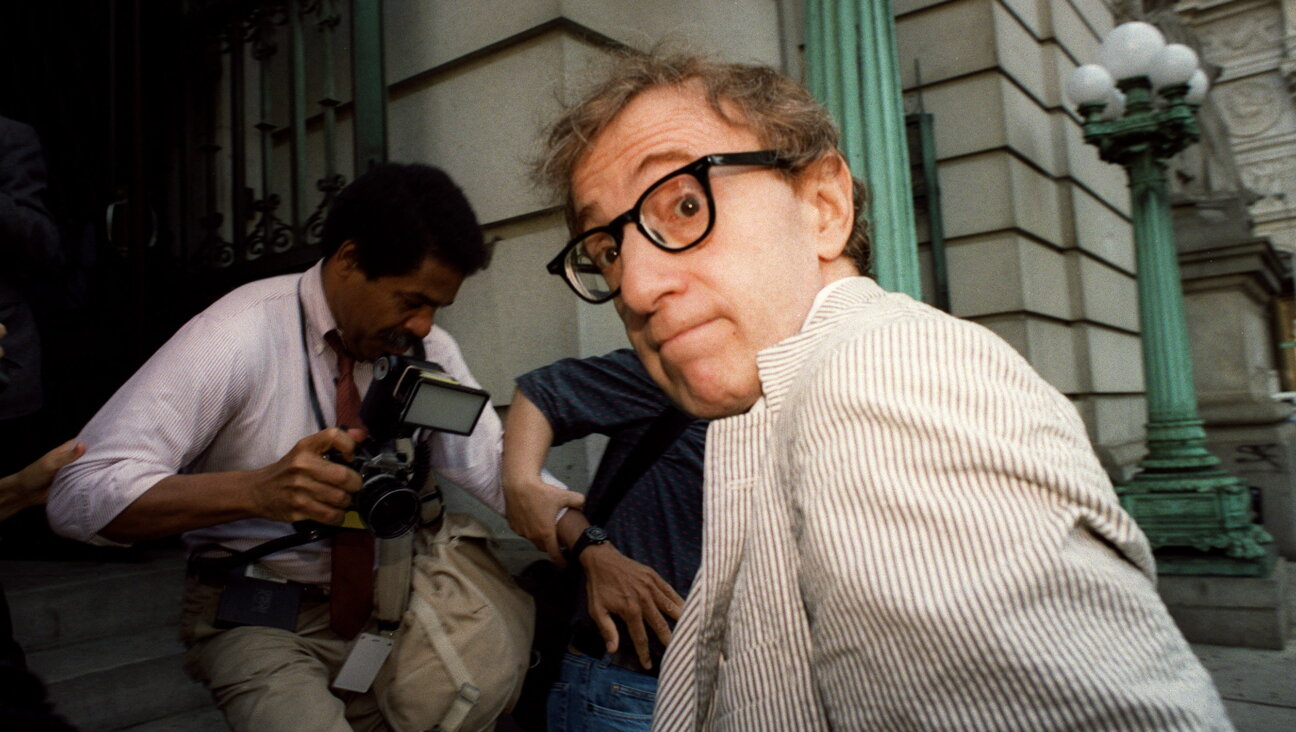Forward Fives: 2010 in Non-Fiction

Image by LUIGI CAPUTO
In this, the second annual Forward Fives selection, we celebrate the year’s cultural output with a series of deliberately eclectic choices in film, music, theater, exhibitions and books. Here we present five of the most important Jewish non-fiction books of 2010. Feel free to argue with and add to our selections in the comments.
As Forward readers surely know by now, my own book, “When They Come for Us, We’ll Be Gone: The Epic Struggle to Save Soviet Jewry,” was published this year. I’ve been lucky to find it mentioned on two end-of-year lists — The New Yorker’s and the Washington Post’s. For this, I am very grateful. And partly by way of passing on the favor, I was happy to choose the Forward’s five best non-fiction books of the year. These are all books that sparked conversations and that were, more importantly, great reads.

Image by LUIGI CAPUTO
Simon Wiesenthal
By Tom Segev
Doubleday, 448 pages, $32.50
Who was Simon Wiesenthal? Tom Segev takes as his most recent subject a man whose reputation as Jewish avenger completely overshadowed all else about him. Segev brings Wisenthal back down to human size. He shows us the Nazi-hunting operation for what it was — both impressive and more slapdash than we knew — and explores controversies like Wiesenthal’s friendship with Kurt Waldheim and his work for the Israeli Mossad. It was a life, as Segev shows, that was forever linked to the great 20th century cataclysm. The horror never let him go.
Read the Forward’s review of ‘Simon Wiesenthal’ here.
The Rebbe: The Life and Afterlife of Menachem Mendel Schneerson
By Samuel Heilman and Menachem Friedman
Princeton University Press, 382 Pages, 29.95
Samuel Heilman and Menachem Friedman have written an illuminating biography of the last Lubavitcher rebbe, who some of his followers took to be the messiah. This is not a hagiography, and the book has actually been denounced by members of the Chabad community for painting a picture of the young Menachem Mendel Schneerson in Berlin and Paris in the 1930s. In those early years, Schneerson was studying to be an engineer, never stepped into a synagogue, and cavorted with artists and poets — certainly a different portrait of the man who would one day lead the most vibrant Hasidic movement of our time.
Read the Forward’s review of ‘The Rebbe’ here.
The Sabbath World: Glimpses of a Different Order of Time
By Judith Shulevitz
Random House, 217 pages, $28
A combination of social history and personal rumination, Judith Shulevitz’s book about the significance of the Sabbath helped trigger a conversation about the lost beauty of a day of rest. She examines the roots of Sabbath observance and the many ways it has manifested itself over cultures and time. But Shulevitz also wrestles with her own “ambivalence” about the day, and what it should mean in a world that has little time to do nothing.
Read the Forward’s review of ‘The Sabbath World’ here.
Yehuda Halevi
By Hillel Halkin
Nextbook/Schocken, 368 pages, $25
Hillel Halkin’s biography of the philosopher, doctor, communal leader and, arguably, the greatest Jewish poet of medieval Spain is almost a love letter. A man who also chose life in Israel, Halkin empathizes with Halevi’s extreme longing for Zion. The admiration is combined with meticulous scholarship to explore Halevi’s works, particularly his most important contribution, The Kuzari. When the story of Halevi’s life ends in obscurity, with his death just after he finally sets out for Palestine, we long to believe that the poet glimpsed Jerusalem before his last breathe.
Read the Forward’s review of ‘Yehuda Halevi’ here.
Bloodlands
By Timothy Snyder
Basic Books, 544 pages, $29.95
Timothy Snyder’s book is groundbreaking, not for providing new information about World War II and its atrocities, but for offering a reframing, both chronologically and geographically, that allows us to see those historical events in a new light. Snyder looks at 1933 to 1953 as one long continuum of ideological violence, focused in a geographical area he calls the Bloodlands that included Ukraine, Belarus, the Baltic States and what was eastern Poland. The Holocaust in Snyder’s telling is the apotheosis of this violence. In this way it is unique, but in other ways it is part of all that came before it, even Stalin’s starving of Ukraine in the early 1930s.
A message from our Publisher & CEO Rachel Fishman Feddersen

I hope you appreciated this article. Before you go, I’d like to ask you to please support the Forward’s award-winning, nonprofit journalism so that we can be prepared for whatever news 2025 brings.
At a time when other newsrooms are closing or cutting back, the Forward has removed its paywall and invested additional resources to report on the ground from Israel and around the U.S. on the impact of the war, rising antisemitism and polarized discourse.
Readers like you make it all possible. Support our work by becoming a Forward Member and connect with our journalism and your community.
— Rachel Fishman Feddersen, Publisher and CEO





























